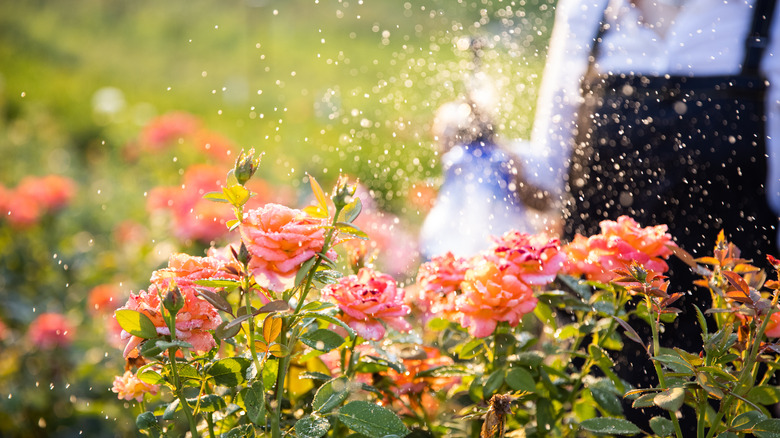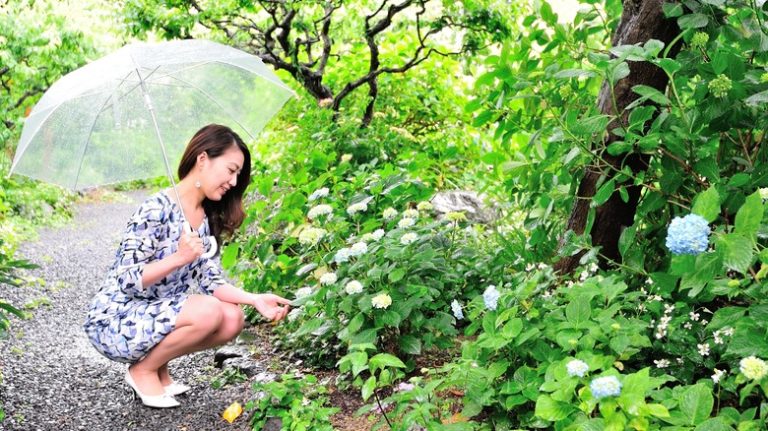There are many kinds of roses that can be grown in gardens. Some require more care and maintenance than others. Most gardeners who grow roses agree that some form of fertilizer is helpful to keep roses thriving and blooming their best. But fertilizing needs to be done in a particular way to avoid stress or harm to your rose, including root burn or shock. Watering your rose before and after fertilizing is the best way to get the maximum benefit from fertilizer.
Roses are known to be “heavy feeders” meaning they consume nutrients throughout their growth cycle, and these substances contribute to more colorful, long-lasting blooms. Giving roses extra nutrients in the form of fertilizers is a way to ensure they have the nutrition they need. On the Martha Stewart website, the in-depth guide to fertilizing roses, rose expert Kristen Smith advises watering roses before feeding if the soil is very dry: “this will prevent the flower from taking nutrients up too quickly.”
Despite their love of nutrients, if roses absorb fertilizer too quickly, the resulting impact can be damaging or even permanent. This might cause a condition some call “salt burn” or “fertilizer burn” which can cause brown spots on leaves and withered petals, and possibly weaken or kill the rose. So by utilizing the very simple trick of watering before and after fertilizing, you can protect your roses from any potential issues that might result from fertilizing.
Water first, then fertilize

In addition to the recommended use of fertilizers, roses can sometimes be a fit fussy about soil. Organic fertilizers, which break down more easily than non-organic products, can improve soil quality. The Garden Design website recommends using organic fertilizers for roses, because non-organic formulas do not feed the soil. The site recommends several brands of organic rose food, including Espoma Rose-Tone and Dr. Earth Rose & Flower Fertilizer.
Using an organic fertilizer on your roses and watering before and after applying it is a good method for helping to keep them thriving. Organic fertilizers also support beneficial microbes that feed soil and act as natural protection from pests and diseases. Organic amendments such as bone meal make good nutrients for the soil around rose plants, and many commercial rose fertilizers contain bone meal.
Not all roses require as much fertilizing as others, so do some research into the variety of roses you have and fertilize accordingly. For example, repeat blooming varieties such as hybrid tea roses do best when fertilized several times a season. Any time you want to add nutrients or fertilizer to your roses, be sure to water lightly first, and then water lightly afterwards. If the weather forecast shows no rain for a few days, continue to water daily to keep this process going and help break down the fertilizer nutrients so they will be easily absorbed and not damage your roses.
Continue a good water and fertilizer regimen
Paying attention to the water needs of your roses is important, and there are some recommended methods for doing it properly. Combing a good watering regimen with a good fertilizing regimen will give you the best chance of a successful season of blooms and continuing health of your rose bushes, along with other practices such as proper pruning.
If you’re planning to fertilize your roses, check the weather forecast to see when there will be some rain. Fertilizing after a brief rain shower is a good idea, but if there is ongoing heavy rain, it’s best to wait and fertilize when you have a bit more control over how much water your rose is getting. Just as you do your best to plan other garden tasks for the right timing and weather, it’s important to plan for the best timing and conditions for fertilizing roses.
If you’re adding fertilizer to your rose plants more than once per season, continue the practice of watering before and after. This is especially important if the soil around your roses is dry. Water thoroughly and let the water absorb into the area around the roots. Then add organic fertilizer (liquid or granules) according to the package directions, and add more water after, being careful not to overwater or leave a pool of water. Taking care to water before and after fertilizing is a good way to optimize the health of your roses.
